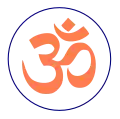Adivasah (Adhīvāsah, Adhīvāsa, Adivasa) is an upper garment of Vedic times clothing; It is a type of over garment similar to a mantle or cloak.[1] Vedas refers paridhāna (dress) as a set of clothes with these two main components where Vasa is for the lower body and Adivasa for the upper body.[2][3]
Name
Adivasah is a Sanskrit word (Adhīvāsah, Adhīvāsa, Uparistādāvarakam vāsah) which means a long coat.[4]
Use
Princes wore Adivasah.[1] On special occasions, such as religious ceremonies, paridhāna was a must.[2]paridhāna a set of Vasa (Vastra or Vasana) for the lower body, Adivasah as upper/over garment, Uttariya for the upper body. Most of these clothes were common for men and women with distinctive wearing and draping styles. The headdress then was called Usnisa or Usnisha.[5] Vedic time Aryans were used to dress formally in these garments and sometimes embellished with gold. Later few more types of garments such as Atka, Drapi, and nivi were also used.[3]
See also
References
- 1 2 Handa, O. C.; Hāṇḍā, Omacanda (1998). Textiles, Costumes, and Ornaments of the Western Himalaya. Indus Publishing. p. 19. ISBN 978-81-7387-076-7.
- 1 2 Biswas, A. (Arabinda) (2003). Indian Costumes. Public Resource. Publications Division, Ministry of Information & Broadcasting, Government of India. p. 101. ISBN 978-81-230-1055-7.
- 1 2 Dr. Priti Mitra (November 1985). Indian Culture And Society In The Vedas. p. 47.
- ↑ www.wisdomlib.org (2014-08-03). "Adhivasa, Adhivāsa, Adhīvāsa: 16 definitions". www.wisdomlib.org. Retrieved 2020-12-19.
- ↑ Das, Sukla (1980). Socio-Economic Life Of Northern India. Abhinav Publications. p. 150. ISBN 978-81-7017-116-4.
Clothing in South Asia | |
|---|---|
| Clothes |
|
| Headgear | |
Stitching and design | |
| Footwear | |
| Philosophy |
|  | |||||||||||||||||
|---|---|---|---|---|---|---|---|---|---|---|---|---|---|---|---|---|---|---|---|
| Texts |
| ||||||||||||||||||
| Deities |
| ||||||||||||||||||
| Practices |
| ||||||||||||||||||
| Related | |||||||||||||||||||
| Major groups |
| ||||||||||||
|---|---|---|---|---|---|---|---|---|---|---|---|---|---|
| Historical |
| ||||||||||||
| Related topics | |||||||||||||